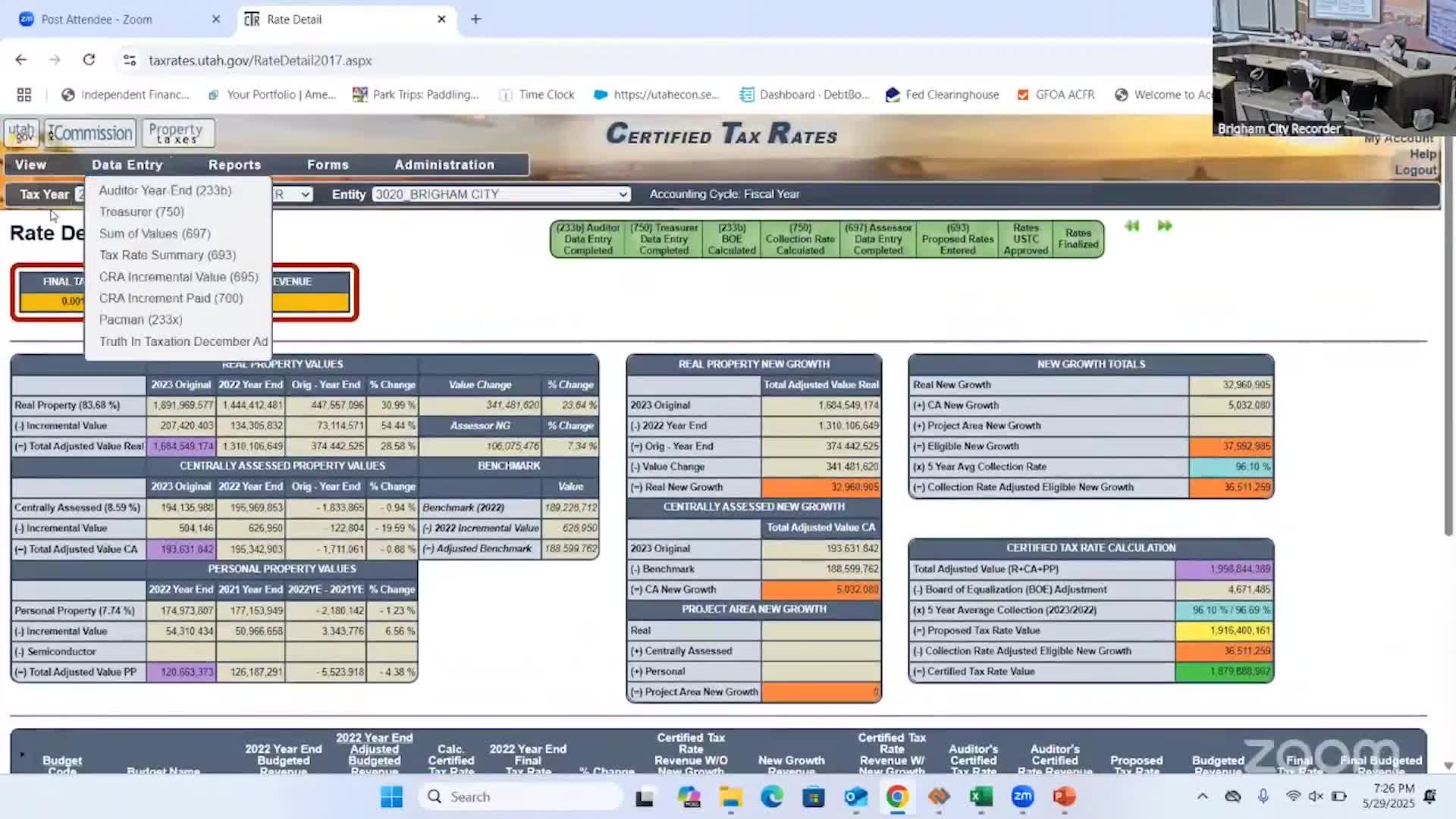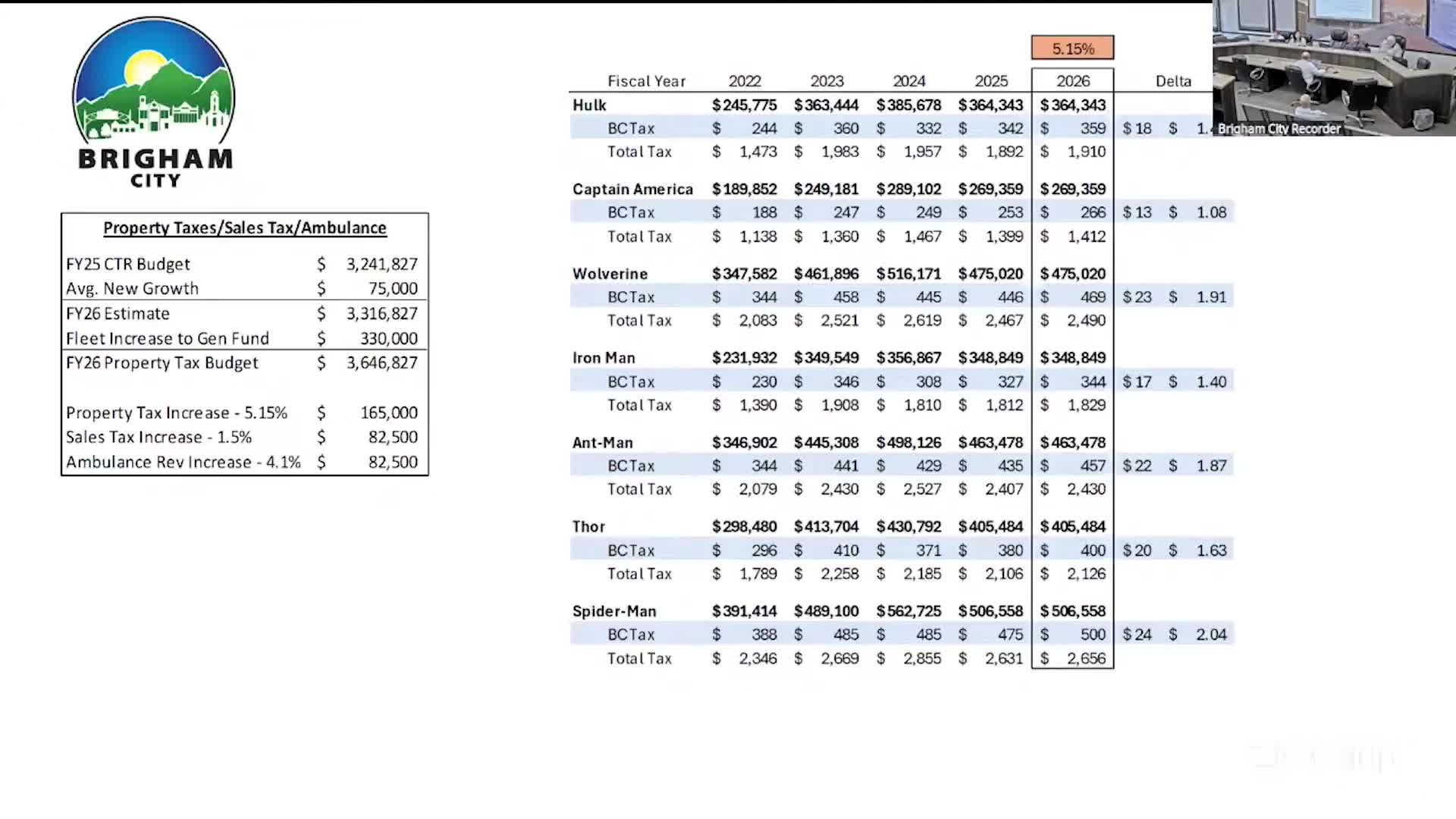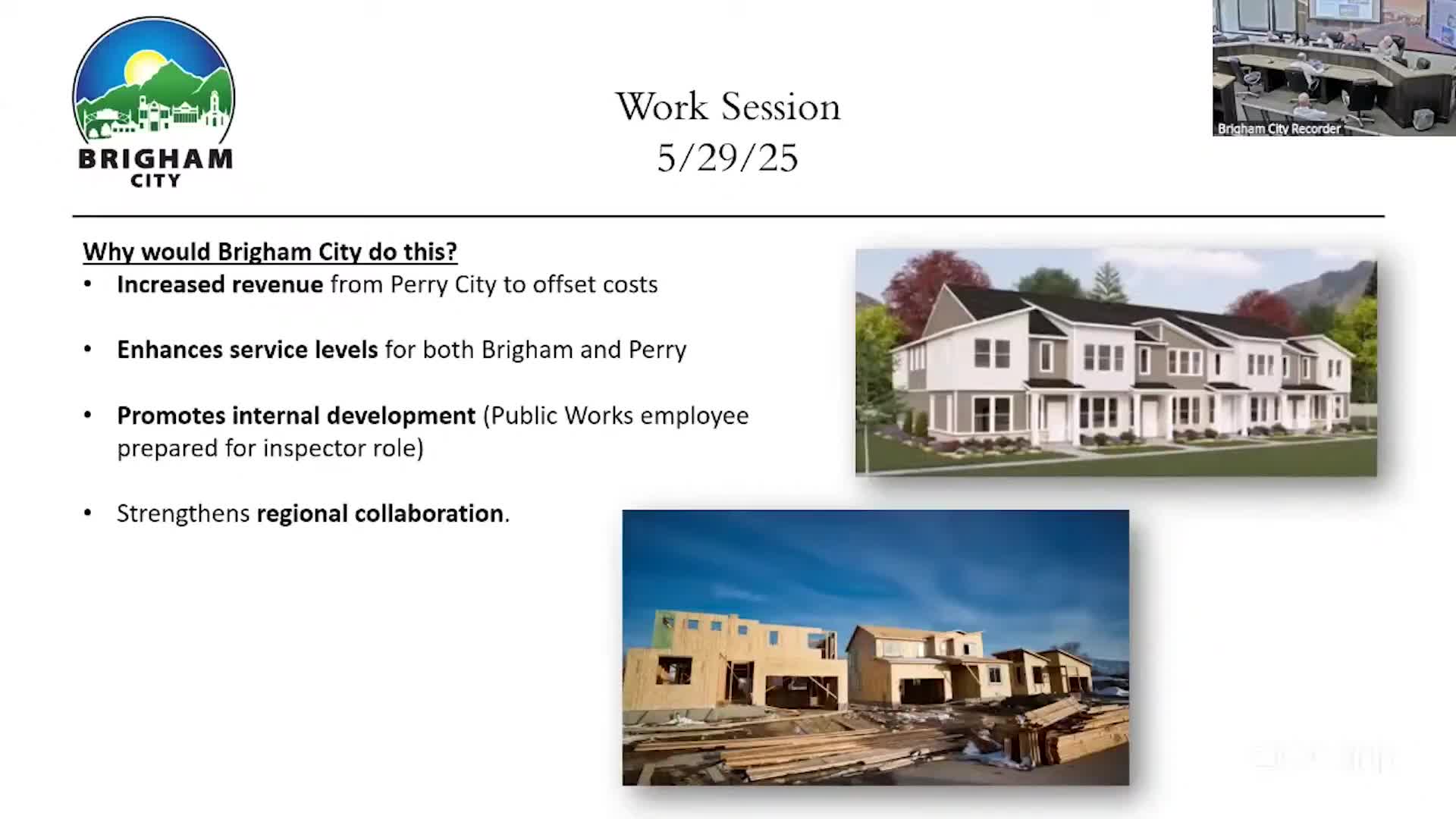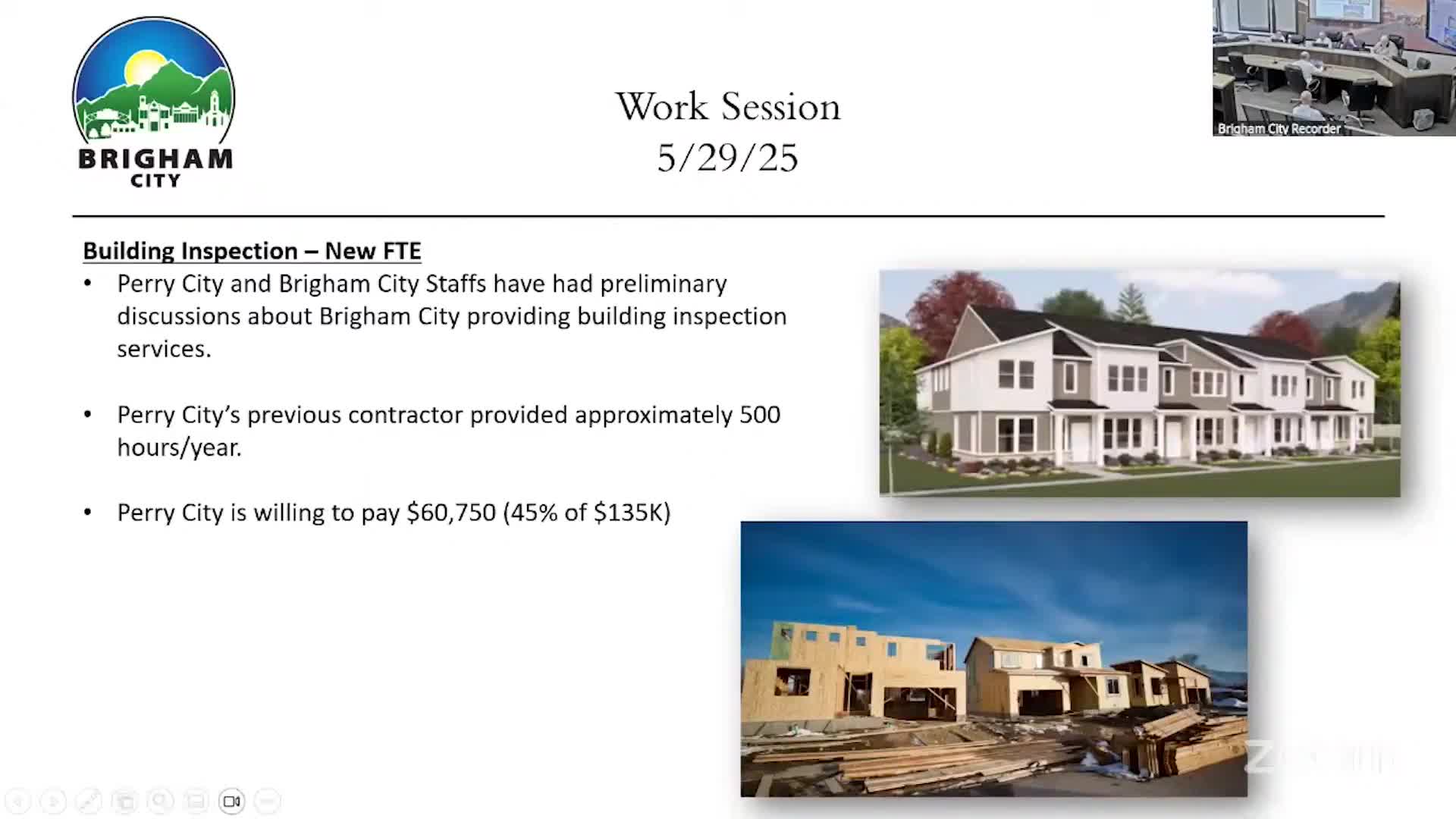Article not found
This article is no longer available. But don't worry—we've gathered other articles that discuss the same topic.

Brigham City to fold library tax levy into general operations; existing library fund balance remains restricted for library use

Brigham City to set PPAC to zero for June; recycling rate change constrained by Econowaste contract

Brigham City staff outline $405,000 fleet‑fund shortfall and options including a targeted 5% property‑tax proposal

